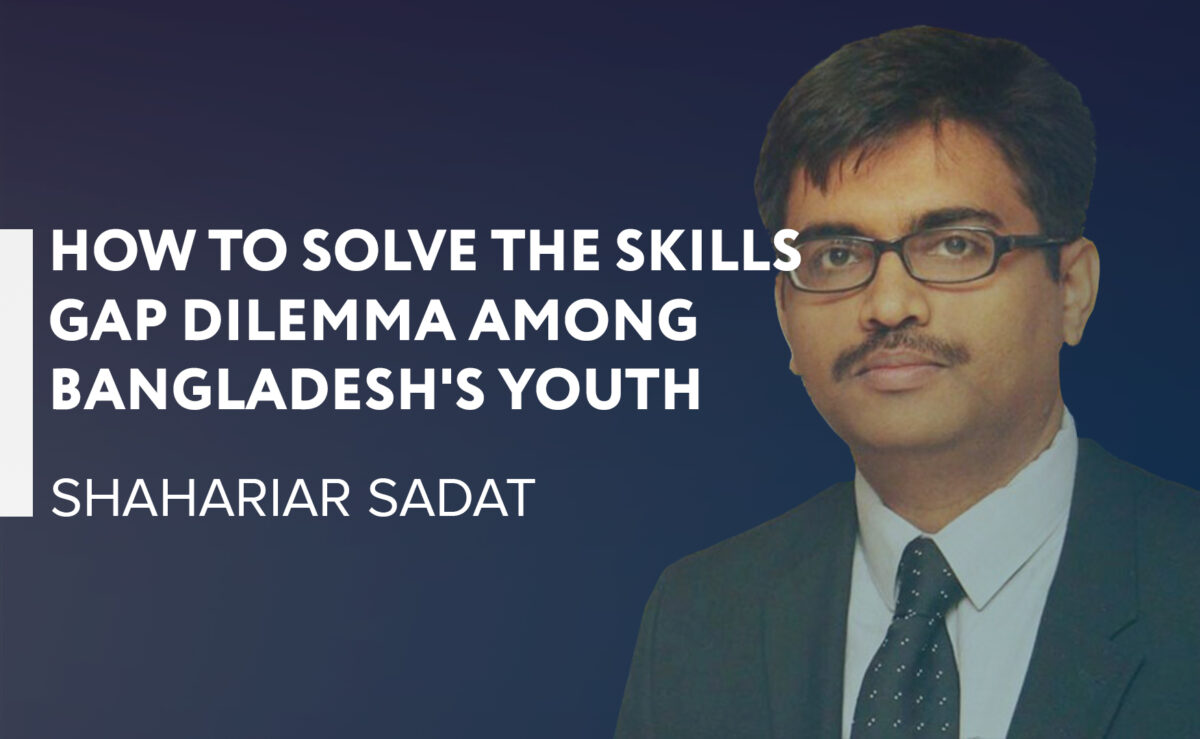Interviewed by Commonwealth Chamber Correspondent Fatema Antara
Shahariar Sadat is currently serving as the Director for Academic and Legal Empowerment at the Centre for Peace and Justice, BRAC University. He is an Advocate of the Supreme Court of Bangladesh and an accredited mediator and master trainer on mediation. Prior to joining CPJ, he was appointed as the Head of Programme of Human Rights and Legal Aid Services (HRLS) at BRAC.
He is a mediator of the Global Mediation Panel of the United Nations. He has worked as a country mediator of the Compliance Advisor Ombudsman of the World Bank Group and as a mediator for the Independent Redress Mechanism of the Green Climate Fund. He is also associated with the Bangladesh International Arbitration Centre (BIAC) as a panel mediator and master trainer. Recently he has been invited to join the Accountability Mechanism of the World Bank as a mediator.
Mr. Sadat was a partner and course coordinator for the London College of Legal Studies (South), an institution which provides teaching support for qualifying law degrees under English law. He had been an adjunct faculty member of the University of Liberal Arts Bangladesh and the University of Dhaka. He was also previously the Academic Coordinator and Research Manager of the South Asian Institute of Advanced Legal and Human Rights Studies (SAILS).
In this interview with our correspondent Fatema Antara, Shahariar Sadat discusses whether the current education system of Bangladesh equips students with the necessary skills needed to compete in the local and global job markets. He also explains what needs to be done to improve the education system as a whole and how the Commonwealth can emerge as a vital catalyst for change in this regard.
Q1.According to a study titled “Skills Gap and Youth Employment in Bangladesh: An Exploratory Analysis” conducted jointly by the Center for Policy Dialogue (CPD) and the Bangladesh office of the German social development organization Friedrich-Ebert-Stiftung (EBS), around 46% of private employers in the country have difficulty filling job vacancies because most applicants lack the necessary skills.
In light of this finding, do you believe Bangladesh’s current education system adequately prepares graduates for employment?
Answer: The main issue with our education system is that it is not skill-based. It is overly focused on knowledge and certification. Most students strive to complete their syllabus and obtain a degree. So, when they enter the job market, they are unable to find work due to a lack of understanding of the job market and the skills-set required by employers.
On the other hand, we are not producing enough jobs to match the number of students in certain sectors. For example, the number of law graduates and number of law officers needed in the market do not match. As a result, we are in a job market which has a huge skills mismatch problem. For example, we see people with a degree in Chemistry ending up working as a banker.
Q2.What do you think are the most effective methods of curricular reform?
Answer: Policy decisions will have to be taken to steer the education system towards a direction where students will be ready for their lives. Starting with the higher secondary level, the overall aim of our education system should include developing life skills including leadership, interpersonal communication and team building. Knowledge is critical so is the application of the knowledge. The future curriculum should keep this in mind. All learners must acquire knowledge and learn how to apply that knowledge in real life. Bridging the gap between books and real life is critical.
Even before we reform our overall curriculum, we must instil in our students the idea that the goals and aspirations of life are much larger than what they are learning and working for. Failure to provide this vision may lead to permanent skills gaps and job dissatisfaction.
Q3.Aside from bringing curricular reform, what other steps can be taken to resolve the skill gap?
Answer: I think the societal mindset needs to change as well. For example, when I meet new students in the classroom and ask why they chose law, the most common response is that their parents encouraged them to do so. Few people claim to be passionate about or interested in this subject. The majority appear to be living someone else’s dream.
Young people often make poor life choices in the sense that they choose what they do not want and later realise it was a mistake. Our children must be given the opportunity to grow up with the autonomy of learning and decision making after a certain age. Parents must let their children make their own decisions and support them in pursuing their aspirations. They must be allowed to dream big and try to be larger than life.
Q4. Can the Commonwealth contribute to addressing this skill gap in any way? If so, how?
Answer: When we think of academia, we usually think of universities or undergraduate programmes, but it should extend beyond that. It should be a skill-based curriculum rather than one based on knowledge or theory. It should start as early as secondary and higher secondary school.
We must include people from various industries in the decision-making process for any curriculum reform to see what skills are in demand in their respective fields—something that is currently lacking in our country. The Commonwealth can begin by assisting in the construction of this link between academia and industry.
Furthermore, in the higher secondary levels, preparation and counselling on future career paths should be introduced already so that students do not have to scramble in their last year of university trying to figure out who or what they want to be. The Commonwealth can work with our government to introduce some of these desired skills in the curriculum for secondary and tertiary levels.
